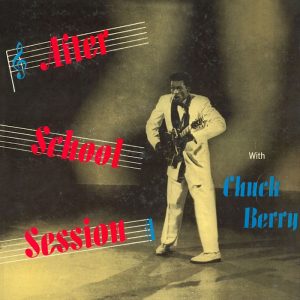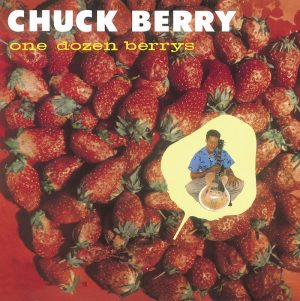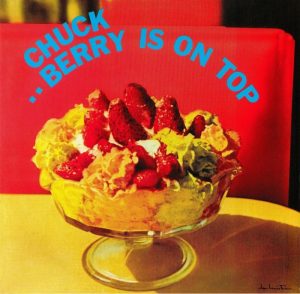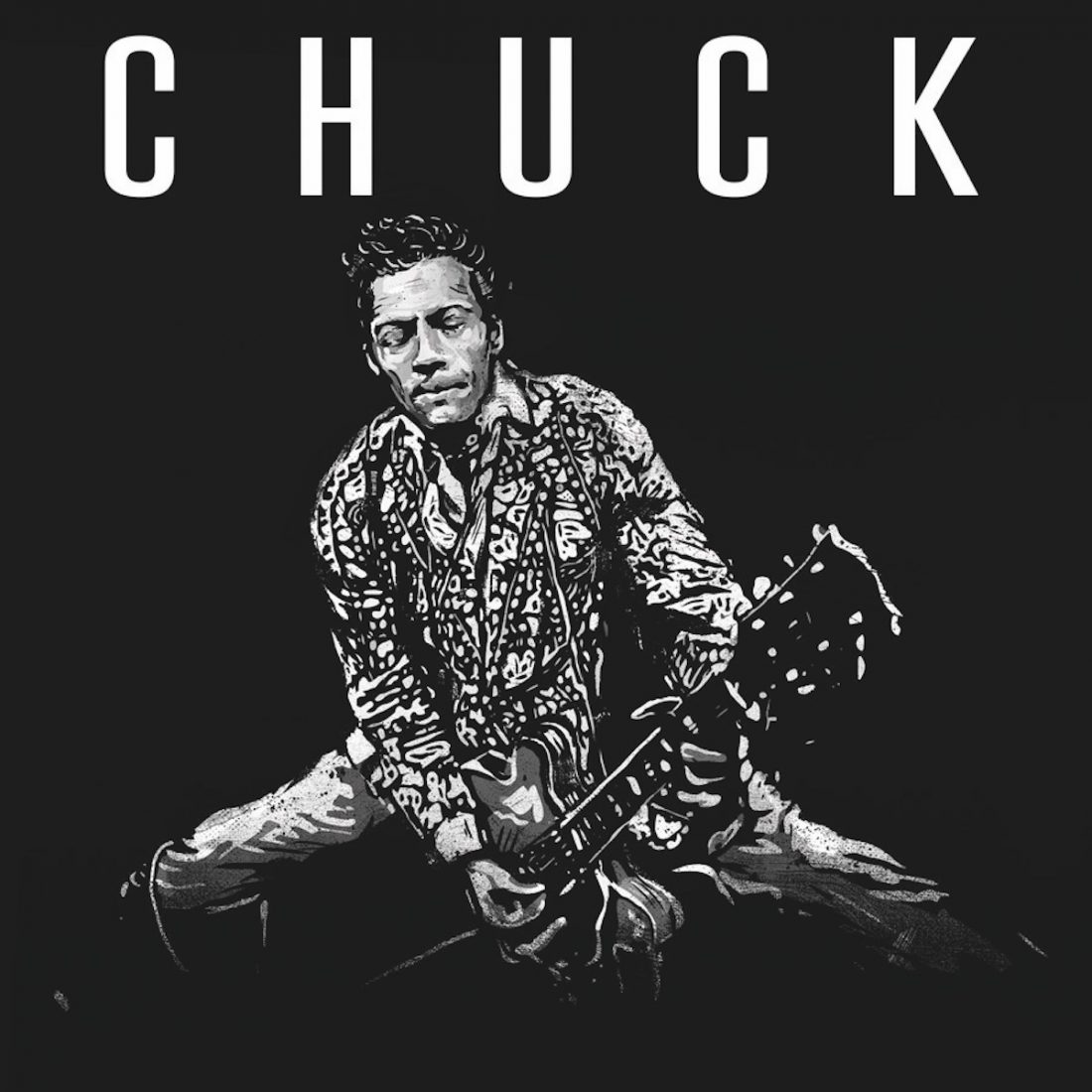Hail! Hail! Chuck Berry The Poet Laureate Of Rock’n’Roll
If Little Richard was the architect of the palace that King Presley made home, then Chuck Berry wrote the blueprint and laid the foundations with his guitar and lyrical wit. Here we pay homage to this musical giant…
On 18 March 2017, the world lost one of the last original leading lights of rock’n’roll, Charles Edward Anderson Berry. A poet with the pen and a groundbreaker on the guitar, Berry set the standard for the generations of artists who followed. Breaking down barriers at the dawning of a new era, the ascent of Berry and rock’n’roll music’s popularity in the 50s reflected the growth of the teen as both a consumer and cultural phenomenon.
Distinctly removed from their parents, who’d been brought up with a backdrop of the Depression and Second World War, a modern youth had emerged with money in their pockets and radios in their cars. Yes, the cult of the teenager was a whole new happening and Berry was in the driving seat.

Riding Along In My Automobile
Brought up around North St Louis in an upwardly mobile, middle-class family, Berry saved part-time wages to make a down payment on his first car – a 1934 model V8 Ford. The automobile represented to a young Chuck, as it does any kid, independence, opportunity, and the open road.
It’s ironic perhaps that, during one ill-fated road trip in 1944, he was arrested for armed robbery and trying to steal a car after he and his cohorts had run out of gas and cash. Sentenced to spend 10 years at the Intermediate Reformatory for Young Men at Algoa, Missouri, a 17-year-old Berry was stripped of his freedom and the rest of his high school years.
Released early on his 21st birthday, perhaps it was the loss of those final reckless years of opportunity which made him so infatuated by teenage pursuits in his songs.
We Don’t Need No Segregation
As a youth, Berry was already astutely aware that musical tastes were split down racial lines. White radio stations played country and western, Black stations broadcast rhythm and blues. A fan of both, Berry integrated this in his music which catered for all styles and all crowds. Young white Americans had started to embrace the R&B sounds of the Black-oriented radio stations just as much as the pop hits of the Billboard chart. It was perhaps inevitable that Berry would become one of the first Black artists to prove popular with white audiences.
“My first inspiration was Nat Cole in high school,” Berry once admitted. “I could not come near Nat Cole, but it didn’t keep me from mimicking or liking his music.” A debonair Black man, Cole was famed for his finely tuned, enunciated, vocal delivery. Berry witnessed how the popular singer was able to transcend race boundaries to become one of the most successful post-war era artists.
Chuck set out to follow suit and would pronounce his words very precisely. It was a style which contrasted to the gruffer drawl of popular blues artists like T-Bone Walker and Muddy Waters. Their influence on Berry would materialise in his electric showmanship and uncompromising attitude.

Saint Louis Blues
When combined with the intricate licks he’d learned listening to jazz guitarists Charlie Christian and Carl Hogan, alongside a deep-rooted appreciation for country/hillbilly music, Berry was an attractive proposition on the buzzing St Louis music scene. As Johnnie Johnson, leader of The Sir John Trio, would soon learn. “One night my saxophone player got sick,” the talented pianist remembered before his death in 2005. “I had heard Chuck playing up the street from where I was and asked him to sit in for that one night… that one night lasted over 27 years.”
While the white and Black communities often lived separate lives in East St Louis, they would unite in the region’s thriving nightclubs. It was one such spot, the Club Cosmopolitan, where kids would congregate and dance together. Word spread of, as Berry described it, “that crazy Black hillbilly at the Cosmo.”
Berry said: “Curiosity provoked me to lay a lot of our country stuff on our predominantly Black audience… after they laughed at me a few times they began requesting the hillbilly stuff and enjoyed dancing to it.”
Johnson added: “The type of music that he played was something kinda new and it went off like a Chinese firecracker.”
The touch paper had been lit and it blazed a trail to the bright lights of Chicago.
Roll Over Beethoven
In 1955, Berry hit the road to the Windy City to see Muddy Waters. While not as doomed as his 1944 jaunt, it would certainly prove just as life changing. On meeting his hero at an intimate club show, Chuck asked how he could get a record deal, Waters replied: “Go and see Leonard Chess and tell him Muddy sent you.” On meeting the Chess Records impresario, Berry impressed with a $79 recording. “I could tell he liked it because he told me to go back and get the band,” Chuck later recalled.
Following Chess’ request to revisit the songs, Berry returned a week later with four revised recordings: Wee Wee Hours, Too Much Monkey Business, Roll Over Beethoven and Maybellene. Tapping into teenage fantasies of fast cars and hot love (or hot cars and fast love), Maybellene’s story of a desperate man racing after his unfaithful gal’s Cadillac Coupe DeVille, certainly got Chess a-motivatin’ to release it as Berry’s debut 45… soon everyone who heard it was reeling from this revolutionary sound. Chess’ son Marshall recalled: “When Chuck Berry broke, many of the disc jockeys at radio stations in America didn’t realise he wasn’t white. When they found out he was Black a lot of them pulled the record.”

Teen Spirit
But the genie was out of the bottle, the real-life characters of teenage pop culture – the rebels without a cause, hot rod girls and delinquents – had a voice on the radio which spoke directly to them. Hitting top spot on the R&B chart and peaking at No.5 on the pop listing, Maybellene proved that Berry was still in touch with his teen spirit despite being almost 30.
Maybellene was indicative of Chuck’s witty and sharp songwriting style. A constant stream of chart-bothering teen tales, perfectly encapsulating young people’s daily life in three-minute vignettes, followed: Roll Over Beethoven was a celebratory rallying cry for rock’n’roll and the overthrowing of those fusty old white composer dudes; School Day (Ring! Ring! Goes The Bell), an insightful reflection of high school anxieties to do well in class given half the chance; Sweet Little Sixteen, one girl’s infatuation with the adrenaline rush of the bandstand hop; and Johnny B Goode, the dreams of a guitar-wielding country boy whose mother tells him, one day he’ll be a star…
Read More: Classic Album – After School Session
Looking Back To The Future
By the end of the 50s, Berry was a leading light of the rock’n’roll revolution. However, on 23 December 1959, he was arrested in St Louis on charges relating to his transportation of a 14-year-old girl across state lines for alleged “immoral purposes”. Following a trial and retrial, Berry would go on to spend the better part of the next two years in prison.
On his release, the rock’n’roll landscape had changed and the teens that Berry had spoken to were making music of their own. On the West Coast, Brian Wilson and his Beach Boys were riding a wave of success. while over on the East, Bob Dylan was the new poet giving a voice to another disconnected generation.
Across the pond, Berry’s music would eventually hit like a hurricane. For kids growing up in post-war “Grey” Britain, rock’n’roll was initially hard to track down but, as the music filtered through, technicolour images of dancehalls and diners, fast cars and young love, came bursting through. British invasion bands such as The Beatles, Stones, Kinks, Animals and Hollies all picked Berry’s pockets and sold his tunes back to the US. “I went away making $1,200 a night,” recalled Chuck, “and when I came back The Beatles had come to America and my salary was $2,000.”
Read More: Classic Album – Chuck Berry Is On Top
Talking on The Mike Douglas Show in 1972, John Lennon, acknowledged: “If you tried to give rock and roll another name, you might call it Chuck Berry”.
So, while Berry had been inspired himself by the jazz, blues and country six-stringers who came before, there’s little doubting he became the first bona fide guitar hero’s hero. You’d be hard pushed to find a corner of the planet that hasn’t been touched by Chuck Berry’s genius. Indeed, his legacy extends far beyond the confines of Earth. When NASA launched the unmanned Voyager 1 in 1977, a golden disc was stored on the craft that would explain our music to extra-terrestrials. The one rock song included was Johnny B Goode. Who knows who, or indeed what, the ultimate rock’n’roll pioneer Chuck Berry, is influencing right now.
To hear Chuck in action click here
Sign up to the Vintage Rock Newsletter






